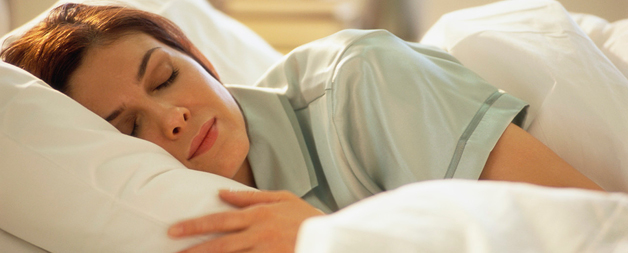
Tips for Better Sleep
FALLING ASLEEP
- Carve out at least 30 minutes of wind-down time before bed in which you do something relaxing, such as read a book. Dim the lights in the house slightly for an hour or so before bed.
- Disconnect from close-range electronic devices such as laptops, phones, and tablets, as the light from their screens can alert the brain and make it harder to fall asleep.
- In order to calm your mind, do a breathing or relaxation exercise.
- If you get into bed and cannot fall asleep after 20 minutes, get up and return to another space in the house to do a relaxing activity, such as reading or listening to music. Lying in bed awake can create an unhealthy link between your sleeping environment and wakefulness. Instead, you want your bed to conjure sleepy thoughts and feelings only.
- Wake up at the same time every day. Even if you have a hard time falling asleep and feel tired in the morning, try to get up at the same time (weekends included). This can help adjust your body's clock and aid in falling asleep at night.
GETTING BACK TO SLEEP AT NIGHT
- Avoid caffeine in the afternoon and evening, and alcohol close to bedtime. These can promote wakeups during the night.
- Make sure your sleep environment is quiet and dark throughout the night. Use darkening shades to block streetlights and early morning light, and a fan or noise machine to block sounds.
- Practice a simple breathing exercise.
- If you are unable to fall back asleep for 20 minutes, do not lay in bed and worry about not sleeping, get up and go to a space in the house to do a relaxing activity, like reading, with dim light.
AVOIDING WAKING UP TOO EARLY
- Make sure your sleep environment is quiet and dark throughout the night. Use darkening shades to block streetlights and early morning light. Consider earplugs or a fan or noise machine to block sounds.
- Practice a simple breathing exercise.






Comments